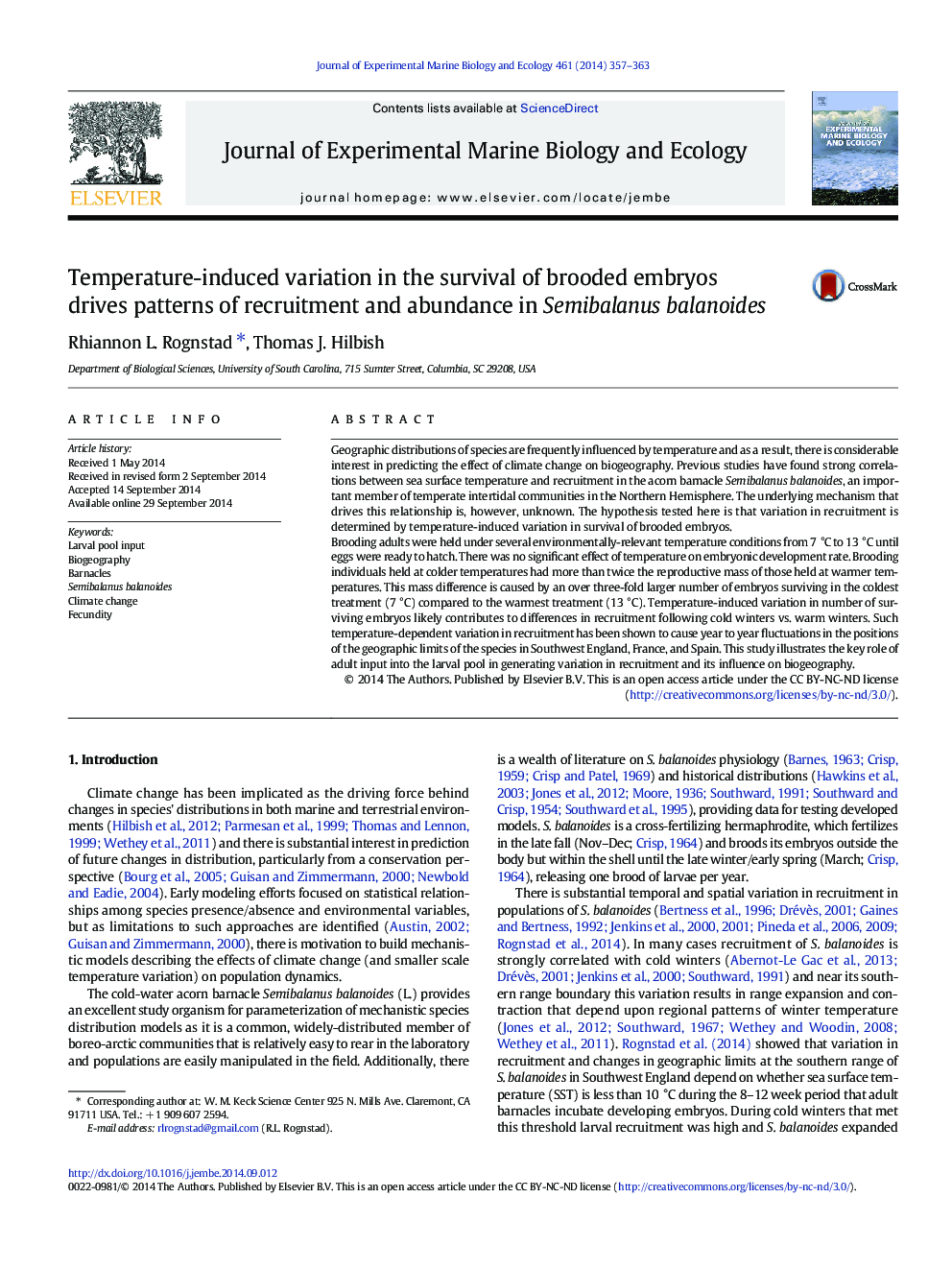| Article ID | Journal | Published Year | Pages | File Type |
|---|---|---|---|---|
| 6303989 | Journal of Experimental Marine Biology and Ecology | 2014 | 7 Pages |
Abstract
Brooding adults were held under several environmentally-relevant temperature conditions from 7 °C to 13 °C until eggs were ready to hatch. There was no significant effect of temperature on embryonic development rate. Brooding individuals held at colder temperatures had more than twice the reproductive mass of those held at warmer temperatures. This mass difference is caused by an over three-fold larger number of embryos surviving in the coldest treatment (7 °C) compared to the warmest treatment (13 °C). Temperature-induced variation in number of surviving embryos likely contributes to differences in recruitment following cold winters vs. warm winters. Such temperature-dependent variation in recruitment has been shown to cause year to year fluctuations in the positions of the geographic limits of the species in Southwest England, France, and Spain. This study illustrates the key role of adult input into the larval pool in generating variation in recruitment and its influence on biogeography.
Related Topics
Life Sciences
Agricultural and Biological Sciences
Aquatic Science
Authors
Rhiannon L. Rognstad, Thomas J. Hilbish,
